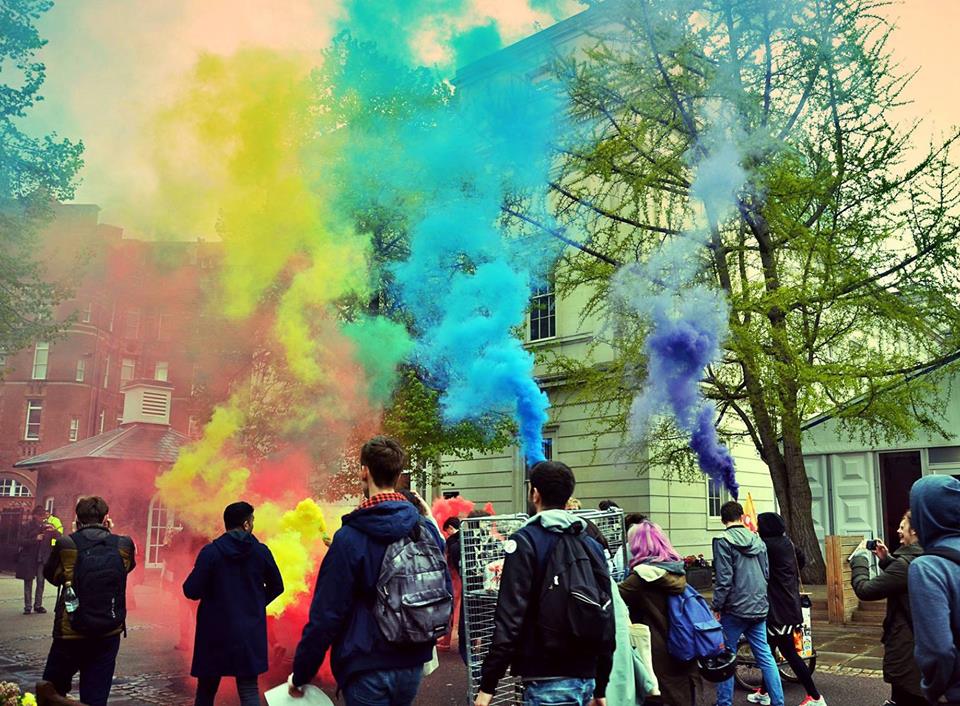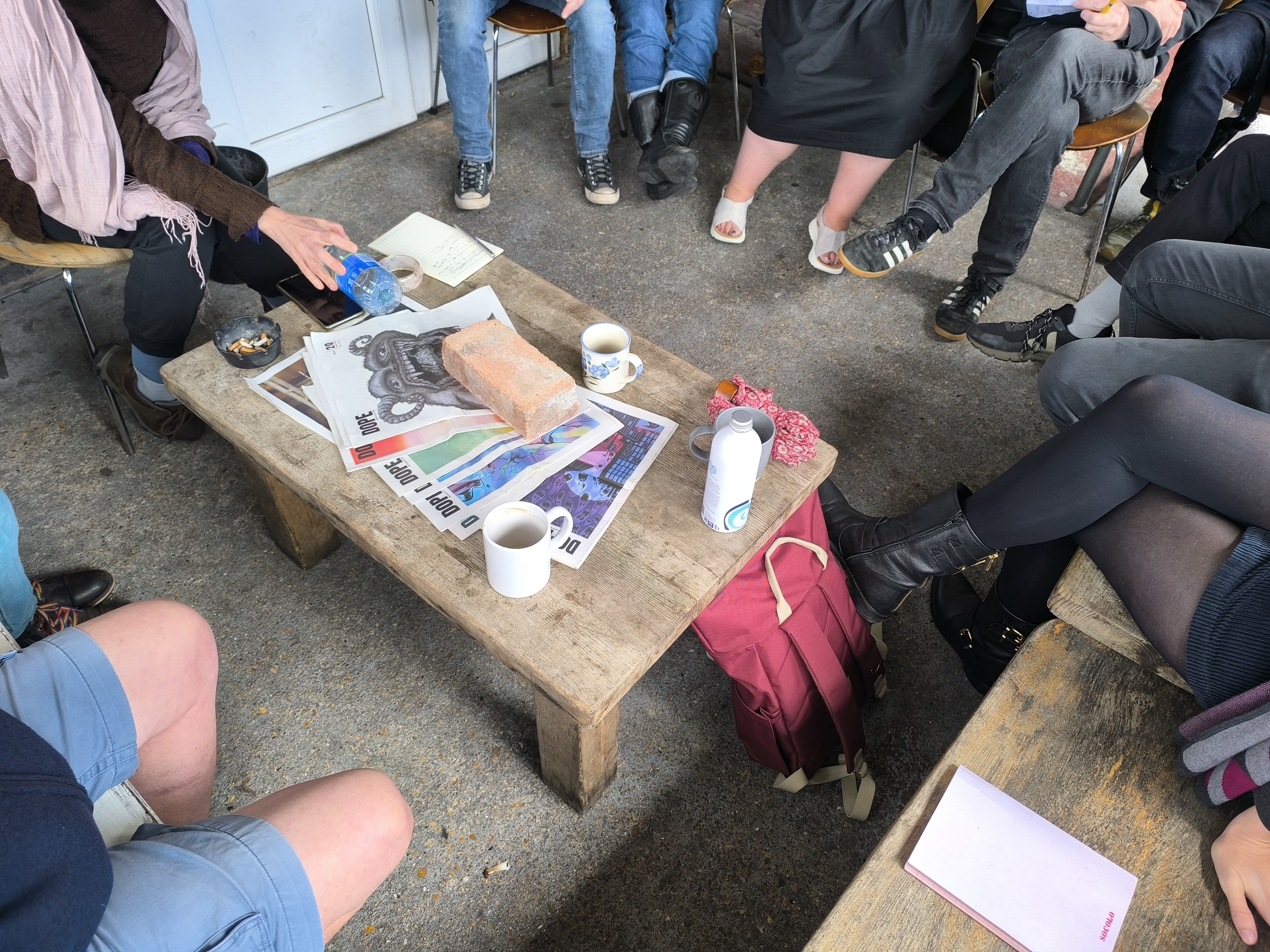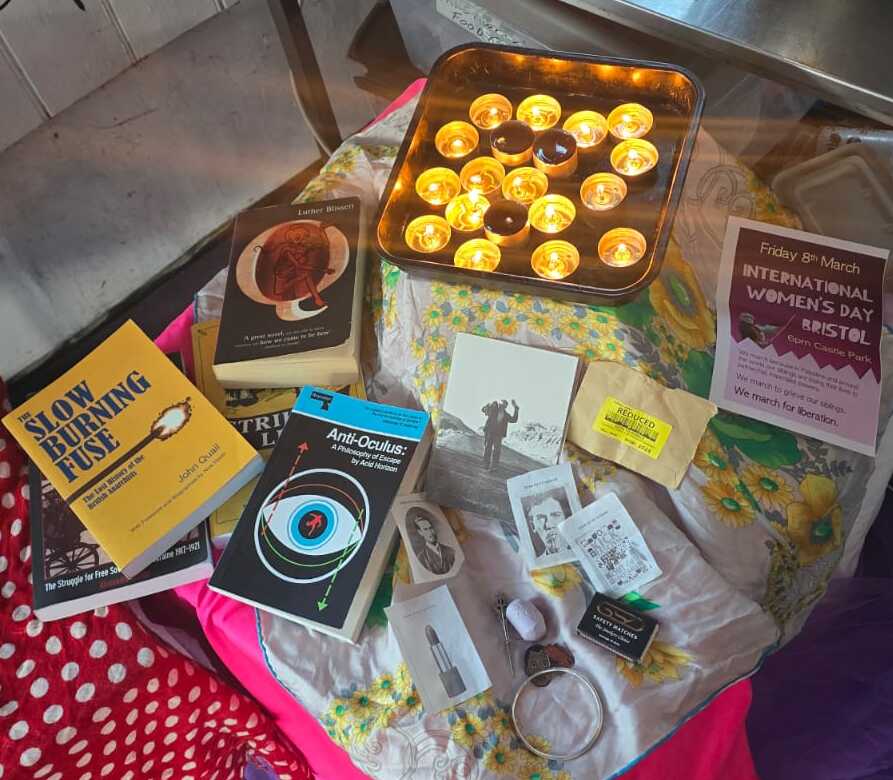This is the text of a pamphlet handed out at the recent Rent Strike Weekender. You can find a pdf of the pamphlet itself here.
Renting is shit – but rent isn’t our only problem.
We work, more than ever before. We’re depressed and anxious, more than ever before. Life is expensive, academic work is stressful… and so on. These problems have been the single biggest factor preventing students taking action and changing things since 2010. The stronger we are, the stronger our rent strikes will be.That’s why we suggest that every group of rent strikers organise a solidarity network amongst themselves (and others) to help build our power and ability to take action.
What is a solidarity network?
It’s a simple, easy to set up form of organisation that uses self-organisation to solve problems. In student life, on the rare occasion that universities do care about our problems, they can take years to do anything – and we know that the government hates us. So we can only rely on ourselves.What we mean by a solidarity network is a group of self-organised projects connected into a central forum so that they can strengthen each other. You could have a poster explaining all the different things the network does. Or, if things are going really well, have an assembly once a month to get all the projects together to discuss what they’re up to, what more could be done, and how to help the rent strike win.Solidarity networks could form the basis of democratic organisation at a hall to hall level , so that the rent strike can move beyond passive participation from the strikers (withholding rent) to creating avenues that address other issues in students’ lives. Rather than being pitted against each other as individualised students, these groups contribute to ways that bring us together in much more than our opposition to high rents.It’s not a new idea to have solidarity networks – from people organising food distribution and medical clinics in Greece after the financial crash to students forming groups to support striking miners in the 80s.
What could a solidarity network in halls actually do?
Study collectives:
We all miss lectures and seminars, and then have to try and find someone’s notes after. Why not get rent strikers to share notes and lecture recordings, or help proof read each others’ work? Academic life doesn’t have to be so isolating. Maybe share books and PDFs, collections of past essays, prep for exams, have discussion groups, divvy up boring articles to read or even invite a friendly academic to talk.
Print co-op:
University printing can be stupidly expensive. Why not get 10 people to contribute £4 each to buy a printer together. Then notes and essays will get printed for no more than the cost of paper and ink! And if you need to get a tonne of leaflets, you’re already set up.
Mental Health Support Group:
Over a quarter of us suffer from mental health problems, mostly anxiety and depression. Mental health services at uni are too often overstretched and can lead to people falling through the cracks. Why not create opportunities where people can express feelings, for instance within flats or strike groups, and have regular welfare checks? This might make it easier to share problems and talk to each other. Realising we’re all in this together and helping each other through it can be massive. The world is shit, but we have each other.
Rent Strike Cafe:
It’s hard to find the time, money orenergy to eat properly sometimes. It’s cheaper to buy food for lots of people, it ensures people spend time with each other collectively and saves time on cooking and chopping. Ready meals and takeaways are about splitting us up – big curry pots and chocolate cake can be a chance to make new friends and plan some trouble.
Support each other at work:
Landlords are shit – and so are bosses. Most of the time when they underpay us or treat us like shit, there’s little we can do. But just like a rent strike, when we work together we can fuck them over for a change. Don’t be afraid to bring problems you face at work to the strike group/flat group as this type of organisation is where our strength can lie – if there’s an action or a picket work out how to support it. Syndicalists have done this for decades, and it works.
Eviction resistance:
You don’t have unprotected sex just because you’ve never had an STD, so why would you have a rent strike without being prepared for the university to throw you out? There’s not much chance of them trying it, but it’s better to be prepared. It would be basically impossible to evict people from halls if even just 20 students sat down/blockaded key entry and exit doors. Set up a WhatsApp/encrypted messenger group to contact people at short notice, maybe even have a practice drill. Let’s make sure we defend each other.
Anything else:
Most problems you experience as a student aren’t unique. Chances are, other rent strikers feel the same as you. If you work together, the solutions usually aren’t too hard to find.
Finally – the work of looking after each other has been the job of certain genders and races for hundred of years. It’s been a central part of capitalism’s oppression of us and it’s fucked up our movements. Let’s not make the same mistakes again. It might be obvious, but think about who does the washing up in groups, and who does the ‘important’ organising.





